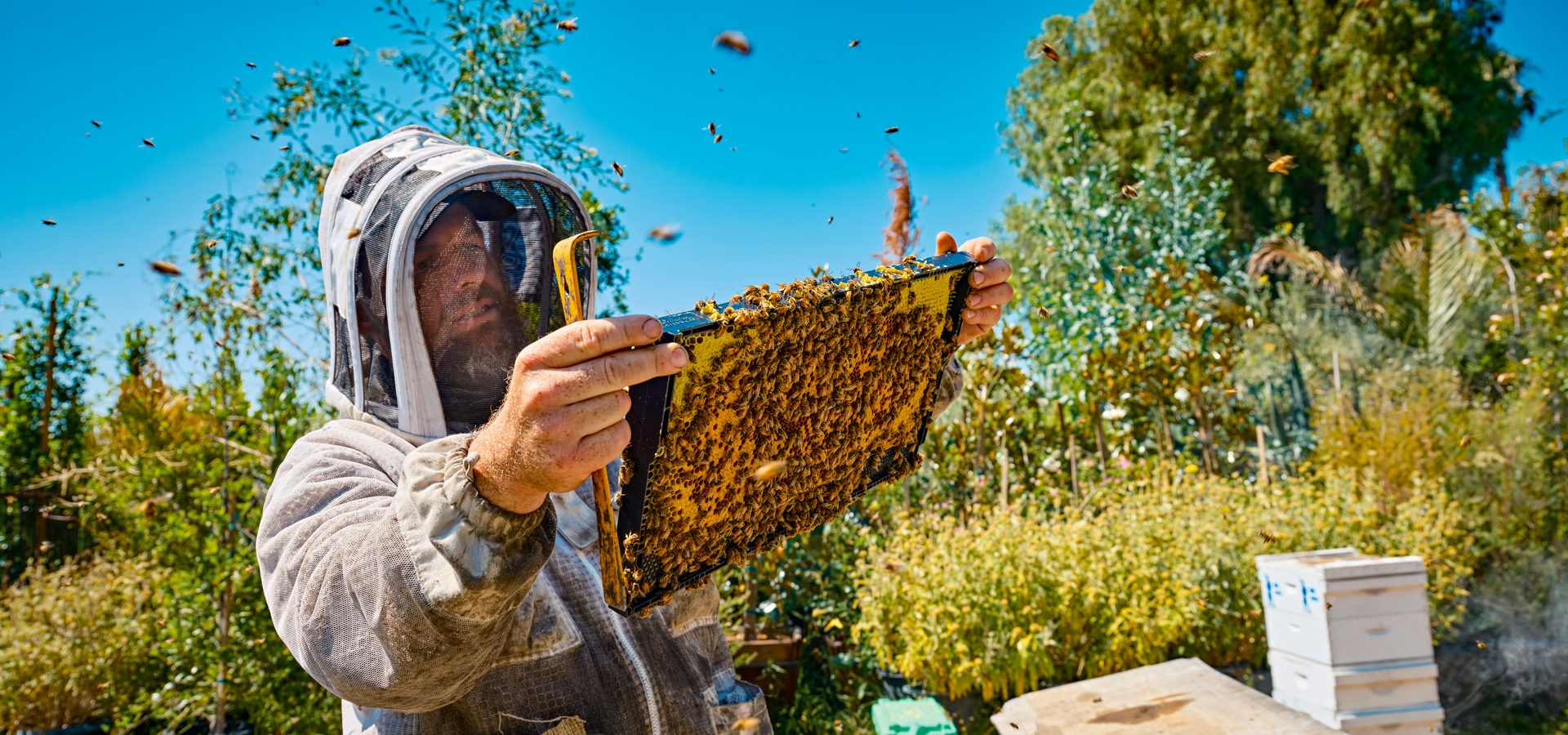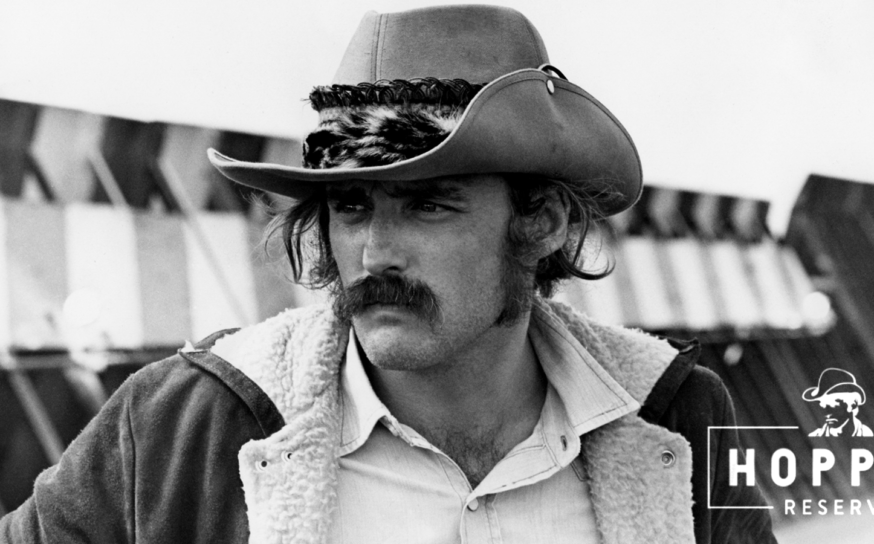A SoCal Business Helps Locals of All Ages Become Better Beekeepers
A honey of a deal.
-
CategoryExperiences, Farm + Table, Makers + Entrepreneurs, Outdoor Adventure, Small Businesses
-
Written byAnne M. Russell
-
Photographed byMichael Becker
“If you’re going to work with bees, you need to look at the bee as more than a flying stinger,” says Keith Roberts, chief beekeeper and co-owner of The Valley Hive. “You’re participating in an ancient and arcane craft.”
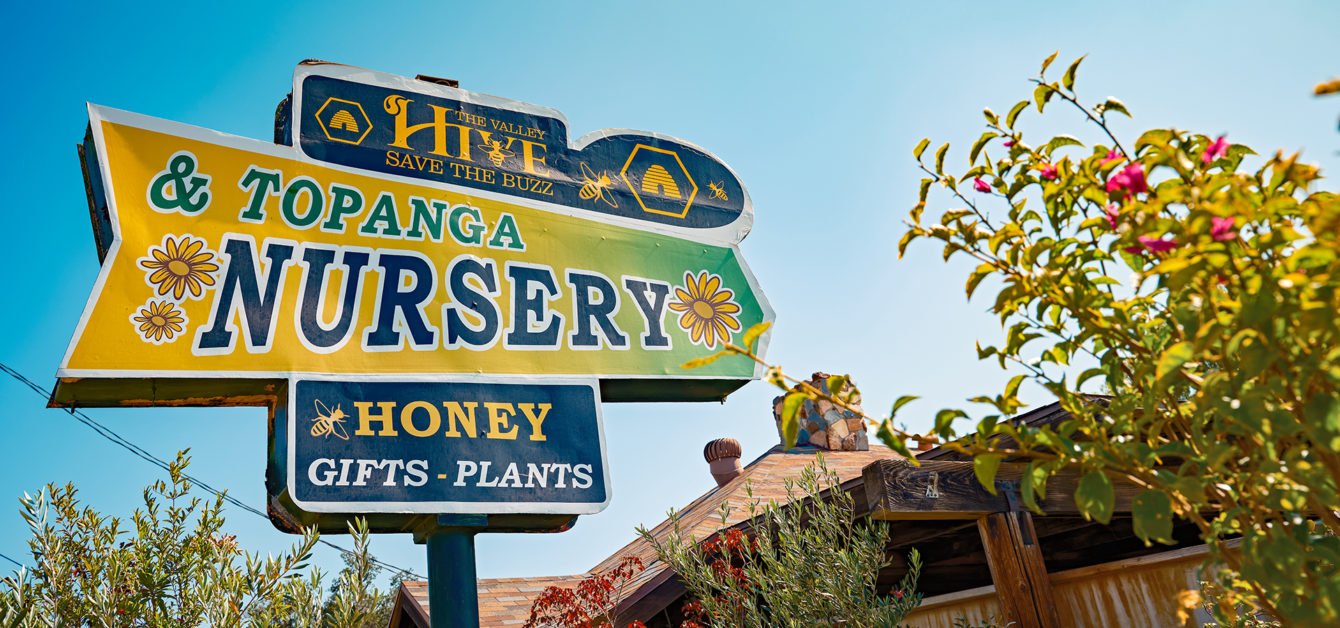
If you head north on Topanga Canyon Boulevard, almost to the famous Stoney Point rocks in Chatsworth, you’ll find Keith, a guy who has made it his mission to spread awareness that bees are so much more than just nasty stingers or honey makers.
In 2014, Keith and his business partner Danny Finkelstein founded The Valley Hive, which shares space with a bustling plant haven that they also own, Topanga Nursery. While the on-site beehive area is at the rear of the nursery (a safe distance from where customers browse among the plants), everywhere you look, the nursery’s plants are abuzz with the Hive’s honeybees. To some, it may seem a bit intimidating, but the bees are nothing to fear, says Keith—he calls them “nice” bees. And that’s not just a proud parent’s idle brag: Honeybees are bred to be docile so that they can be handled safely by beekeepers and minimize any threat to the surrounding community.
Keith’s infatuation with bees was sudden and serendipitous: In 2007, at a friend’s insistence, he visited the LA County Fair, where he found himself deeply bored by the sheep and goats. But then, he says, “I saw an observation hive encased in glass, and I fell head over heels in love.” He hung around the booth, run by the 148-year-old Los Angeles County Beekeepers Association, peppering them with questions.
In 2009, he kicked off a business that removed swarming honeybee colonies from private property and relocated them. But his dream was “to create a business that would help urban beekeepers and teach the community at large. I realized there was no place in the Valley to get help with beekeeping.”
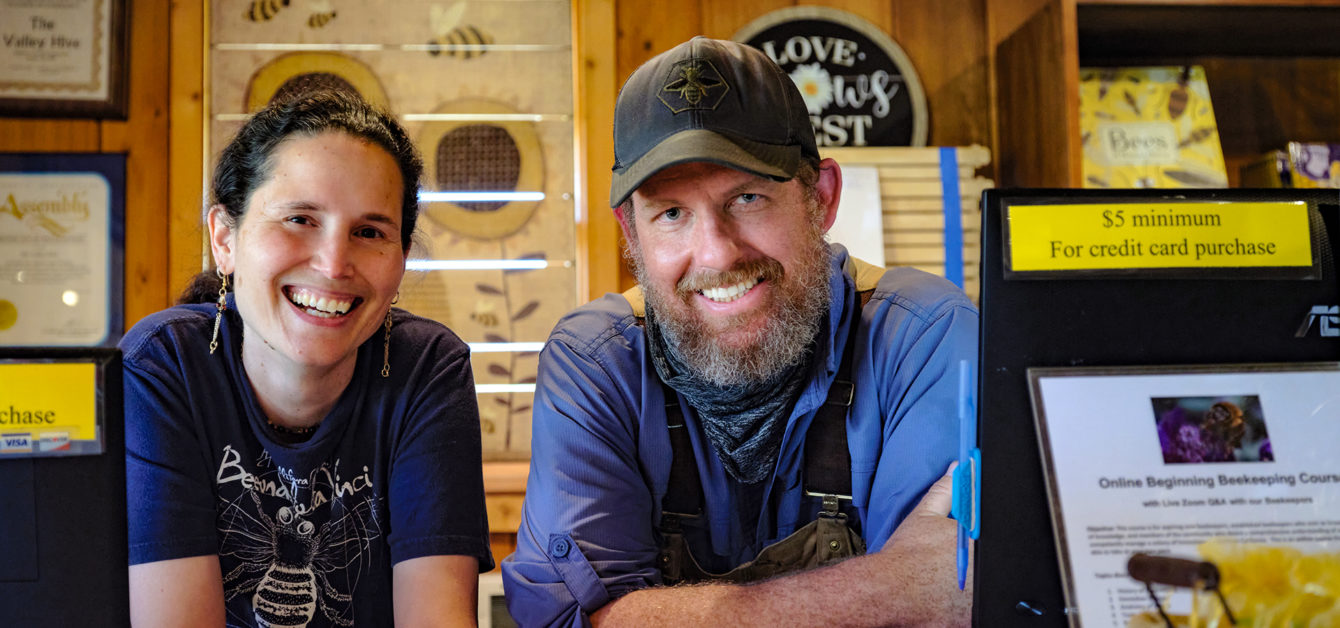
With the opening of The Valley Hive, that dream was realized, and the business was quickly embraced by the Valley’s home-based beekeeping and bee enthusiast communities. The Hive sells apiary supplies like hives, smokers, and bee suits as well as whimsical bee-related gifts that include bee-emblazoned aprons, towels, doormats, and coffee mugs sporting slogans like “Bee Wild” and “Bee Sweet.” The shop also sells an array of honey, pollen, and beeswax products, sourced from the Hive’s own 200 colonies.
The Hive Mindset
“Beekeeping is one of the fastest-growing hobbies,” explains Keith, citing several reasons. “There’s a return to the joy of growing your own food, and having a hive helps with that from a pollination standpoint. Then there’s learning to make candles and lip balms and salves and being able to enjoy honey made by your own bees. And all the news about the collapse of bees has led people to want to know more about them. The best way to know them is to keep them.” The beekeeper says the Hive’s clientele represents the whole range of Valley dwellers. “It’s all walks of life—young and old, male and female.” The youngest beekeeper he works with is 10 years old.
With the pandemic restrictions lifted, Keith has resumed in-person teaching at the Hive, including the popular one-day Beekeeper Experience, where visitors suit up and handle the honey-laden frames that hang inside a hive. For more serious beekeepers, there’s Intro to Beekeeping. He’s also developing a certification program and hopes to offer a satellite beekeeping curriculum in conjunction with UCLA.
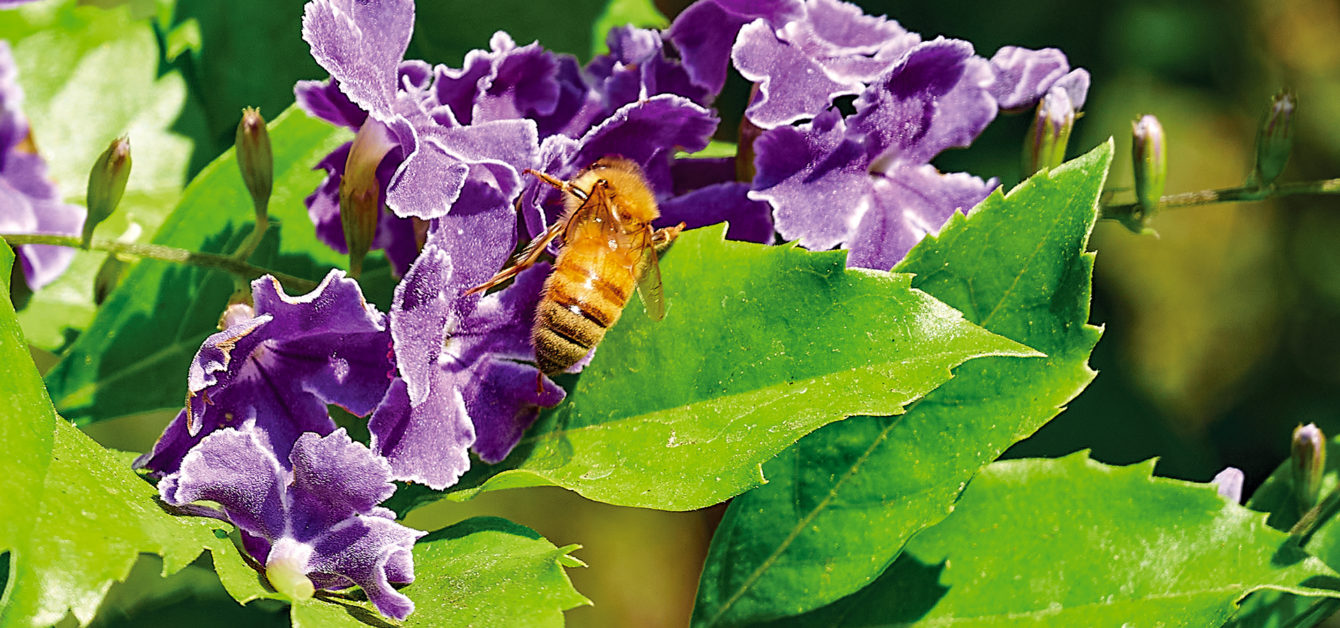
A Taste of Honey
In November, Keith hopes to restart the annual honey tasting competitions the Hive hosted in past years. When last held in 2019, the taste-off included 57 entries from various Southland apiaries. As a honey connoisseur, he is adamant: “When it comes to real, raw, local honey, there’s no bad honey. There’s just different honey.”
As bee aficionados are quick to point out, it’s important to choose the correct honey for your purpose: aromatic sage honey to flavor tea, and robust, dark, avocado honey for barbecue sauce, for example. Longtime employee Jen McDonald, who collects honey recipes, waxes rhapsodic about earthy buckwheat honey on pancakes and creamy cinnamon honey in coffee.
Many of the Hive’s customers believe that the raw, unfiltered honey and pollen the company sells convey medicinal benefits, including combatting pollen allergies. Keith, who has a scientific bent, is somewhat skeptical, pointing out, “You don’t know if the pollen you’re allergic to is going to be in there.” However, he does believe in the superiority of raw honey’s taste and authenticity—that is, honey that hasn’t been filtered to remove pollen and other natural compounds such as antioxidants, enzymes, and minerals. (It is, however, sieved to get rid of dead bee parts and other impurities.)
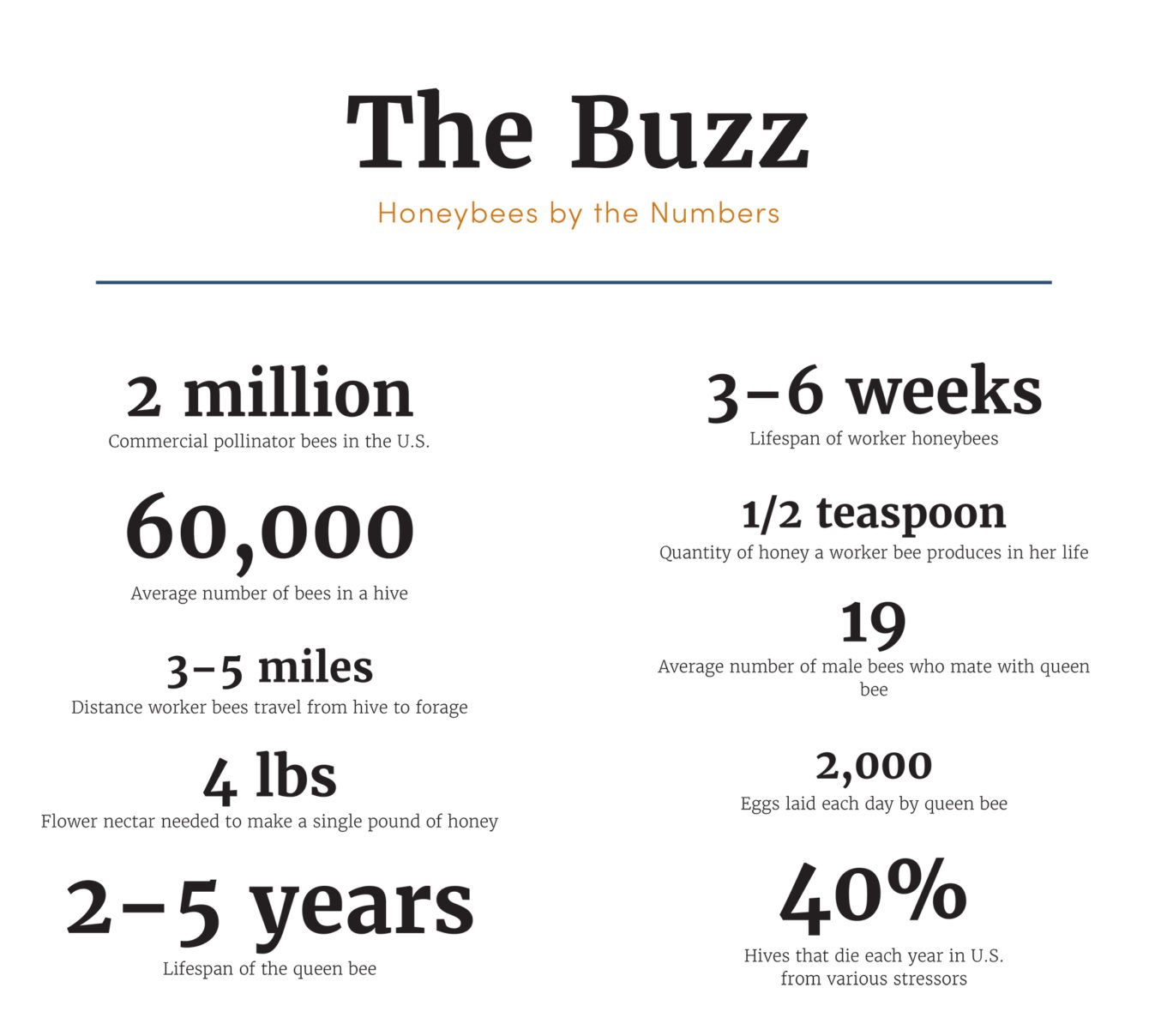
Grocery store honey, on the other hand, has usually been heated to a high temperature—pasteurized—and filtered, removing some or all the natural compounds. The benefit to this processing is mostly aesthetic, since it makes the honey appear clearer and keeps it from crystalizing longer.
“If you don’t know your beekeeper, you don’t know about the honey,” says Keith, somewhat ominously, going on to describe 2013’s Honeygate as “the worst food scandal in history.” Primarily a financial ploy that crashed world honey prices, Honeygate also revealed that some illegally imported Chinese honey contained residual banned antibiotics. Other investigations found that some had been adulterated with rice syrup.
He promises that if you take the leap into home beekeeping, you are guaranteed a singular experience. “The honey will be unlike any honey you’ve ever had,” he says. “Because it’s your honey, from your bees, from the flowers in your neighborhood. There won’t be a honey anywhere on the planet that is quite like it.”
Bryan Mineo Overcomes His Fear of Open Water and Inspires Others to Dive In
Alternating current.
Dennis Hopper Lives on With His Own Cannabis Strain Called Hopper Reserve
It’s packaged how the actor would have smoked it.
In Oceanside, This Singer Is Also Known as Farmer Jason Mraz
Check out what he’s doing to keep small family farms afloat in the San Diego area.
Get the Latest Stories




